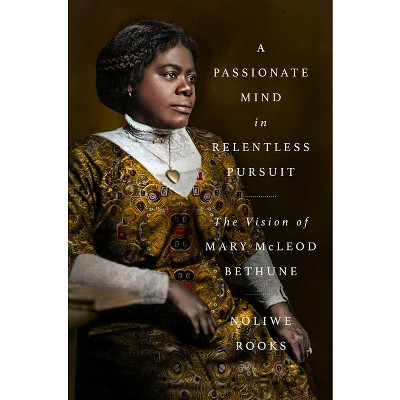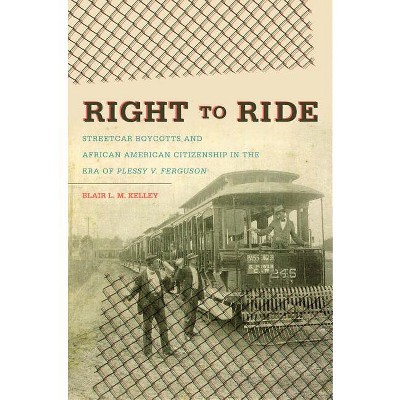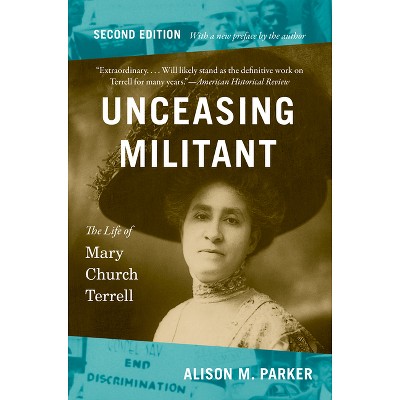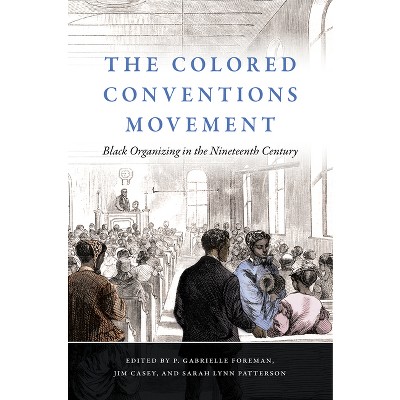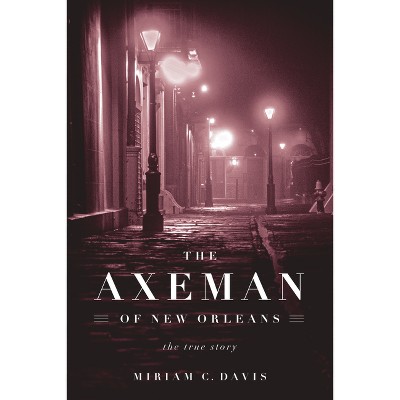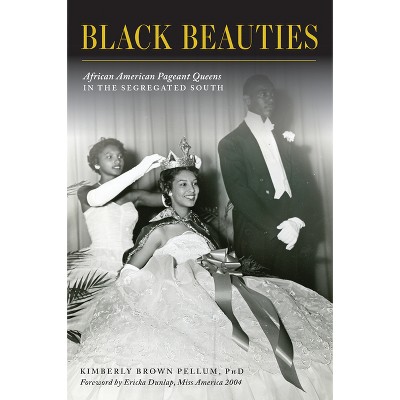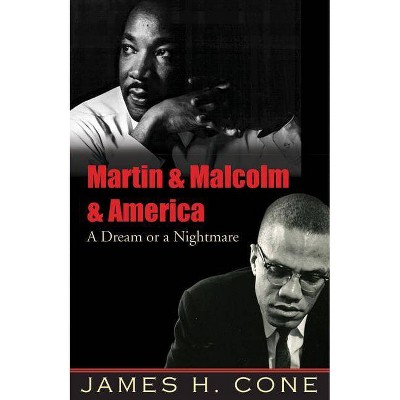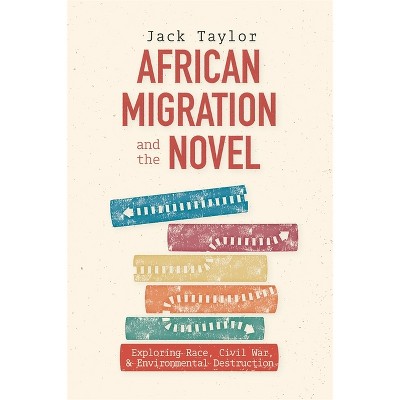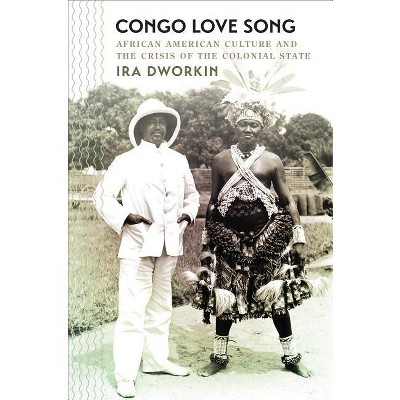Sponsored

A Forgotten Migration - (The John Hope Franklin African American History and Culture) by Crystal R Sanders
In Stock
Sponsored
About this item
Highlights
- A Forgotten Migration tells the little-known story of "segregation scholarships" awarded by states in the US South to Black students seeking graduate education in the pre-Brown v. Board of Education era.
- Author(s): Crystal R Sanders
- 256 Pages
- History, African American
- Series Name: The John Hope Franklin African American History and Culture
Description
Book Synopsis
A Forgotten Migration tells the little-known story of "segregation scholarships" awarded by states in the US South to Black students seeking graduate education in the pre-Brown v. Board of Education era. Under the Plessy v. Ferguson decision, decades earlier, southern states could provide graduate opportunities for African Americans by creating separate but equal graduate programs at tax-supported Black colleges or by admitting Black students to historically white institutions. Most did neither and instead paid to send Black students out of state for graduate education.
Crystal R. Sanders examines Black graduate students who relocated to the North, Midwest, and West to continue their education with segregation scholarships, revealing the many challenges they faced along the way. Students that entered out-of-state programs endured long and tedious travel, financial hardship, racial discrimination, isolation, and homesickness. With the passage of Brown in 1954, segregation scholarships began to wane, but the integration of graduate programs at southern public universities was slow. In telling this story, Sanders demonstrates how white efforts to preserve segregation led to the underfunding of public Black colleges, furthering racial inequality in American higher education.
Review Quotes
"Sanders shifts the historical civil rights era timeline and places the earliest 'massive white resistance to school desegregation' thirty years earlier than widely accepted. . . . [A]ttention to this era also deepens how we understand (1) the systematic underdevelopment of public HBCUs; (2) some of the motivation and vehicles for the Great Migration; (3) the origin stories of important actors in the civil rights movement; and (4) that local cases provided both the research and consistently labor for the larger, more well-known landmark desegregation cases undertaken by NAACP attorneys."--American Historical Review
"A Forgotten Migration is an important contribution to understanding the structural inequalities in American higher education and larger society. By examining the historical roots of "segregation scholarships" and their implications, Sanders challenges us to reflect on the cost of preserving segregation and the steps needed to address it's long-lasting impact . . . . Thoroughly researched and written in an engaging manner that shares moving stories."--Forbes
"A necessary addition to anti-racist bookshelves, this text goes beyond historical analysis and exposes the continuing institutional casualties of postbaccalaureate segregation."--Library Journal, STARRED review
"Groundbreaking . . . . Sanders uncovers a little-known chapter of American history that continues to resonate today . . . . explores the significant hurdles Black graduate students faced at northern and western universities--ranging from discrimination and racism to isolation--while the HBCUs they left behind remained underfunded and neglected by state governments."--NewsOne
"I know of no other book that represents such a timely, engaging, and important contribution to the field."--Rachel Devlin, author of A Girl Stands at the Door: The Generation of Young Women Who Desegregated America's Schools
"Important . . . . Sanders tells about Black graduate students who relocated to outside the South to continue their education with segregation scholarships, revealing the many challenges they faced along the way."--Chapelboro.
com
"Sanders offers a compelling historical examination . . . [and] challenges readers to consider the intricacies and contradictions of the long struggle for educational equality in her book, which goes beyond merely providing a historical narrative of that conflict."--Journal of African American Studies
"This book is essential reading for all who have both the curiosity and courage to wade deeply into the troubled waters of this nation's history relative to the education of Black Americans. Well researched, gracefully written, and urgently needed, do yourself a favor and read this book!"--Noliwe Rooks, author of Cutting School: The Segrenomics of American Education
"This book nobly moves beyond the barbarity of racism to penetrate an unsettling part of the past that desperately needs to be highlighted. Audiences throughout the nation will devour this narrative."--Stefan M. Bradley, author of Upending the Ivory Tower: Civil Rights, Black Power, and the Ivy League
Shipping details
Return details
Frequently bought together

Guests also viewed
